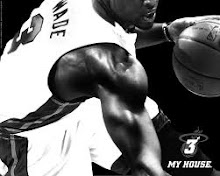Sunday, December 13, 2009
New Ideas?
I found an interesting notion in poem 18 that can easily be related to what we question on Friday about him glorifying Americans. What we didn’t notice was, does he have an opinion on war? And while I read I noticed that poem 18 like I said above is about how Whitman, being an American and idolizing these people, what he thinks of war? Does he talk about it in any of his poems? Yes.
“ Vivas to those who have fail’d!
And to those whose war-vessels sank in the sea!
And to those themselves who sank in the sea!
And to all generals that lost engagements! and all overcome heroes!
And the numberless unknown heroes, equal to the greatest heroes known. ”
Here we see a clear statement of war. The odd thing about this is, like we’ve analyzed already he exalted the American people. With this in mind, we would think that he would talk only of the Americans and their past history: all the wars, the battles, skirmishes, their victories, and finally their vital independence. But he doesn’t, he does the complete opposite, “ And the numberless unkown heroes, equal to the greatest heroes known.” Here he is equalizing both the unknown soldiers, which can give the implication of the opposing soldiers, and the “greatest soldiers known” which implies the glorious ones. Taking all these things into account, I was puzzled when I read the first line of the stanza Whitman writes, “Vivas to those who have fail’d!” I didn’t know what to think anymore, because not so long ago we had established that he was elevating everyone from the rest, but still if he had this mentality than why would he celebrate the failure of those who failed? Might he have been degrading the Americans self-centered egos once again? After evaluating a couple of pieces of Whitman and seeing an Anti-American trend, could he really be against them?
Thursday, December 10, 2009
Chapters 6, 7, and 8
Wednesday, December 9, 2009
Just Brilliant
Sunday, December 6, 2009
Chapters 3-5 Of Candide
We are introduced to a peculiar character named James, the Anabaptist. James is an altruistic character and I noticed again, that Voltaire attacks the altruistic, optimistic people in this world. He does this because James tries to save a very “excited sailor who struck him a violent blow”(Voltaire 32)and the sailor lost his balance and almost fell overboard, James being the altruistic hero turns and saves the helpless sailor, when all of a sudden he slips and falls into the sea. The very selfish sailor doesn’t bother helping James who a few seconds earlier had saved his poor life. Voltaire again is targeting the Church, specifically Christian morals, the uselessness of being kind to everyone. He also criticizes the altruist, James, who doesn’t offer any good to society; in turn he is a victim of his own altruism.
Flaubertness
By the way Mr. Tangen, did Flaubert only write in free indirect style?
Thursday, December 3, 2009
Smooth Like Flaubert
The New Beginning
Wednesday, December 2, 2009
A Satirical Voltaire
As I began to read Voltaire's Candide I noticed something that caught my attention and I thought of it to be rather odd. Voltaire is actually satirizing most if not all characters and their personal traits. For example the name of the barony, "Thunder-ten-tronckh" although many people might have not taken it this way, I surely found it to be even mocking. Voltaire's word choice is questionable, one can say these words are childish because of the alliteration in between hyphens. He also undermines the families nobility, the very pride that one feels for their family name, their legacy. We see once again the use of mockery towards the characters when Pangloss, the castle's tutor, teaches a rather strange profession “metaphysico-theologo-cosmolo-nigology” we are given another example of Voltaire's childish word choice.
Another interesting demonstration of satire in which we see over and over in Candide is the inevitable display of going against the orthodox lifestyle or beliefs. For example we see early in the book that Voltaire ignores the aristocracy belief in natural superiority at birth when the baron's sister refuses to marry Candide's father because he only possessed 71 quarterings while she had 72. Again Voltaire illustrates the complete ignorance of Voltaire towards what was known as orthodox, in other words, he goes against what most people saw normal and just. In those times woman weren't given the decision to marry whom they wanted, they were told who would be their partner in matrimony.
